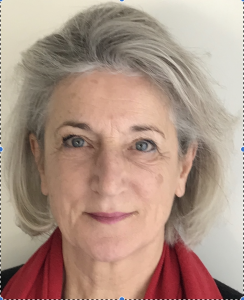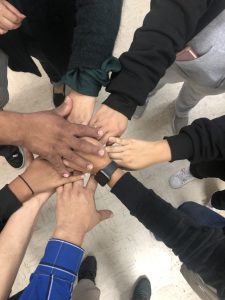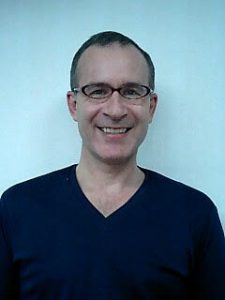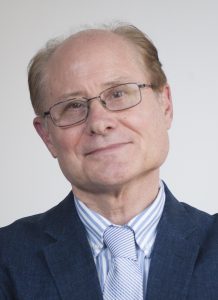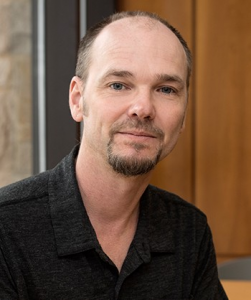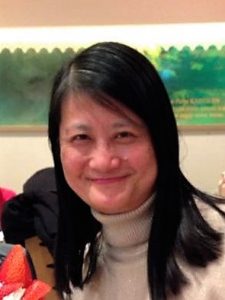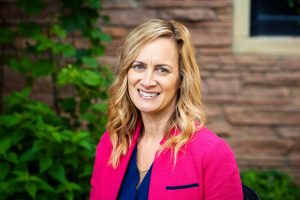Temple TESOL Speakers Series, Spring 2021
Tuesday, April 13th, 3:30 pm via Zoom: https://temple.zoom.us/j/96640146137
Dr. Marjolijn Verspoor, University of Groningen and University of Pannonia, Hungary
Title: I have come a long way. Chunk learning is key!
Abstract:
In this talk, I would like to trace the long way I have come myself from the early 80’s as an ESL teacher in the US who wrote grammar books from a structure-based perspective till now when as a researcher I promote L2 teaching from a dynamic usage-based (DUB) perspective. “You have come a long way” is an example of a chunk, a relatively fixed combination of words that English speakers regularly use and that has a particular meaning in a certain context. Spoken language consists of approximately 60% of such combinations and to sound fluent and authentic second language learners should learn especially these kinds of expressions from which they can eventually deduct language patterns. However, there is very little room in current foreign language teaching approaches for chunks as an analysis of course books and classroom observations in the Netherlands shows. Instead, teachers spend a relatively long time teaching grammar rules and testing grammar knowledge. It has proven very difficult to convince teachers of the need for a different approach. The reason is probably that there is a deep-rooted conviction that rules exist and that language is structure-based. If you know the grammatical rules, you master the language!
I argue that language is not a complex system driven by systematic rules, but it is a highly associative, complex, dynamic, usage-based, self-organizing system that is meant to convey meaning. To express meaning, language users often use similar expressions over and over again, and some of these have regularities that are similar to rules and linguists describe as such, but they do not form the basis of language. I will show developmental patterns of learners and show that grammar is learned implicitly, but it takes a bit longer. Language teachers must therefore let go of the idea that grammar teaching is the most important. It is better to spend a lot more time on conventionalized phrasing by listening and reading authentic language material.
Biography:
Marjolijn Verspoor is Prof. Emeritus of English Language and Second Language Acquisition at the University of Groningen. She is Professor of Applied Linguistics at the University of Pannonia in Hungary. Her academic career started out as an ESL teacher in the US and she wrote two textbooks for ESL students. After completing her PhD at Leiden University on a topic in theoretical syntax with a usage-based perspective, she moved to the Netherlands, where she first started teaching English for Academic Purposes at the University of Groningen and eventually moved more to the Linguistics courses in the program. About 15 years ago, she helped set up a Masters in Applied Linguistics in Groningen, where she worked closely with her colleagues on Complex Dynamic Systems Theory (CDST) and became very much interested in studying L2 development from a Dynamic Usage Based (DUB) perspective. At the same time, she supervised several Master’s and doctoral theses in teaching English, French, Dutch and German from a Dynamic Usage-Based perspective. In her work she has always combined the theoretical (Cognitive Linguistics, Usage-Based Linguistics, and CDST) with the practical implications for L2 teaching and development.
Wednesday, March 17th, 3:30 pm via Zoom https://temple.zoom.us/j/94398013814
Dr. Holly Link, CCATE
Title: Todo el conocimiento del mundo desde todxs y para todxs [All the knowledge of the world from eveyone and for everyone]
Abstract:
In this talk we discuss our involvement in participatory research at the Centro de Cultura, Arte, Trabajo y Educación (CCATE) in Norristown, PA, a non-profit dedicated to the empowerment of the Latinx immigrant community. We will share how through participatory research, research that involves community members as full and equal partners in all phases of the research process, we are working towards more equitable schooling for immigrant students and families. We will focus on two outcomes of our research. First, we will show how our research has helped us challenge and reframe dominant deficit narratives about the Latinx immigrant students and families. Second, we will share how it has led us to collaborations with the Norristown Area School District in bettering home-school communication and family involvement in schools.
CCATE Community Based Research Circle:
Our participatory research circle first came together in 2015 to present at the Ethnography in Education Research Forum at the University of Pennsylvania’s Graduate School of Education. At this conference, a group of CCATE families and teachers presented family perspectives on home-school communication for Latinx immigrants. Based on this experience the circle co-wrote its first article on the topic of documentation status and schooling, which was published in 2016 in the Journal of Diaspora Indigenous and Minority Education. The Circle formally established itself in 2018 and since then has conducted participatory research to address challenges faced by the Latinx immigrant community and to develop policy interventions and recommendations.
Biography:
Holly Link, PhD, is Director of Educational Programming and Research at CCATE. A former bilingual teacher, she is also an educational consultant in the fields of English as a Second Language and Dual-Language Education. Holly teaches at CCATE, Temple University and the University of Pennsylvania. At CCATE, she is working with a group of teachers and community leaders on participatory research for young people and adults through which they can promote social transformation and inform public policy. Her research on Latinx students and schooling has been published in the Harvard Educational Review, the American Educational Research Journal, and the Journal of Latinos and Education.
Wednesday, February 17th, 6:00 pm via Zoom https://temple.zoom.us/j/94398013814
Dr. David Beglar, Temple University Japan Campus
Title: Six Keys to Second Language Vocabulary Learning and Teaching
Abstract:
The past three decades of research on the acquisition of the four main skills of listening, speaking, reading, and writing have repeatedly shown that vocabulary is either the key component or one of the key components underlying skilled performances. As such, every foreign language teacher should be a teacher of vocabulary. Notwithstanding the impressive amount of research that has been published in the area of second language vocabulary acquisition since 1990, classroom instruction and pedagogical materials have changed relatively little. This presentation is focused on six main areas: the five types of vocabulary and their importance in various real-world contexts, assessing vocabulary knowledge, the necessity of explicit vocabulary teaching and learning, encouraging the acquisition of implicit vocabulary knowledge, supporting learners in the development of automatic lexical access (i.e., fluent use), and embedding targeted vocabulary in communicative tasks. As we cover these six issues, useful online resources that can be used by both instructors and learners to achieve vocabulary learning goals will be presented. Seminar attendees will come away with a clearer idea of what vocabulary their students should (and should not) focus on, how they can help their students increase their vocabulary size, and how they can add a vocabulary component to their courses regardless of the skill(s) being taught.
Biography:
David Beglar is the Academic Coordinator of the Master’s (M.S.Ed.) and Doctoral (Ph.D.) programs in Education at Temple University, Japan Campus. He has taught approximately 20 different graduate courses, has been the primary advisor of approximately 60 doctoral graduates, and has published papers on topics such as vocabulary learning, vocabulary testing, and extensive reading in international journals such as Language Learning, Language Teaching Research, Language Testing, and Reading in a Foreign Language. In addition, he co-authored Inside Track: Writing Dissertations and Theses and an academic listening textbook, Contemporary Topics. His current research interests concern an investigation into test anchoring using the Rasch model and decontextualized versus decontextualized vocabulary assessment.
*Please note that this talk will begin at 6:00 PM EST, because Dr. Beglar will be giving the talk from Japan (8:00 AM Japan time)
Tuesday, October 13th, 3:30 pm via Zoom https://temple.zoom.us/j/98055062159
Zoom recording: Talk by Dr. Brock Brady
Dr. Brock Brady, U.S. Peace Corps
Title: The Challenges, Maturation and Current Areas of Interest for the NNEST Movement
Abstract:
Research on distinctions between the characteristics of Native English Speaking Teachers (NESTs) and Non-Native English Speaker Teachers (NNESTs) began in the early 1990’s and quickly led to increased advocacy for NNESTs and awareness of the benefits NNESTs can bring to the ESL/EFL classroom. A robust body of NNEST literature quickly came into being and many graduate students in TESOL programs found that replicating variations on previous research became a dependable pathway to first publications. In the meantime the TESOL International Association became a welcoming milieu for the NNEST movement through activities of the NNEST Caucus (which became the NNEST Interest Section in 2008), and the election of three NNESTs to the TESOL Presidency (Jun Liu, Yilin Sun, and Luciana C. de Oliveira) along with numerous TESOL International Board Members. Today, although discrimination still exists, NNESTs are more widely accepted, their potential strengths more widely known, and native speakers are finding that just speaking English is no longer enough– teaching credentials have come to be required for EFL employment as well. Finally research is expanding into other areas of identity studies in ESL/EFL settings, including marginalization related to race, gender, class, sexual orientation, or ethnicity. Finally, US government agencies like Peace Corps and State Department’s English Teaching Assistants program are developing thoughtful ways to integrate less-skilled NNESTs into NNESTs’ EFL classrooms.
Biography:
Brock Brady is the Education Expert for the U.S. Peace Corps. He designed a system for the US Peace Corps TEFL Certificate, a 120 hour training and professional development certificate that is validated by the Center for Applied Linguistics. Brady was the President Elect/President/Past President for the TESOL International Association from 2009-12, and was a member of the Board from 2005-2008. Before coming to Peace Corps, Brady served as Co-Director of the American University TESOL Program in Washington, DC for 12 years. Prior to coming to American University, Brady directed English Language Programs for the State Department in Burkina Faso and Benin, lectured at science and technology university in Korea for two years, was a Fulbright Scholar in France, and served as a Peace Corps Volunteer in Togo, W. Africa.
Wednesday, November 4th, 3:30 pm via Zoom: https://temple.zoom.us/j/91854686089
Dr. Patrick Proctor, Boston College
Dr. Lin, Simon Fraser University
Dr. Gort, Univeristy of Colorado Boulder School of Education
Title: Multilingual Learners and Translanguaging Spaces: Opportunities and Challenges
Abstract:
Across grade levels, teachers must instruct a growing number of multilingual students. Increasing linguistic diversity across all classrooms poses unique challenges and opportunities for effective instruction. One approach to instructing students from varied linguistic backgrounds posited to affirm and leverage students’ multiple language practices is translanguaging. Essential to the idea of translanguaging is that students can draw on multiple language resources to communicate and receive messages. This panel, composed of three experts across the U.S. and Canada researching this area, will analyze and debate the merits, implementation, and potential benefits of this approach as well as address how this approach relates to issues of power and difference, code-switching, current state standards, and emergent COVID 19-imposed instructional challenges.
Bios:
Patrick Proctor (he/él) is a professor and educational researcher at the Lynch School of Education and Human Development at Boston College, where he focuses on bilingualism, bilingual education, language, and literacy. Theoretically, his work attempts to merge critical and developmental perspectives on language, literacy, and bilingualism in education. In terms of praxis, Patrick works directly with teachers and administrators on issues of bilingual education and language-based literacy instruction, particularly in schools and districts characterized by student (and ideally teacher) multilingualism.
Angel M. Y. Lin received her doctoral degree from the Ontario Institute for Studies in Education, University of Toronto, in 1996. Since then her research and teaching have focused on classroom discourse analysis, bilingual and multilingual education, academic literacies, language across the curriculum, Content and Language Integrated Learning (CLIL), and language policy and planning in postcolonial contexts. She has published six research books and over 100 research articles and book chapters. She serves on the editorial boards of international research journals including Applied Linguistics, International Journal of Bilingual Education and Bilingualism, Critical Inquiry in Language Studies, Language and Education. In 2018 Angel Lin moved from the University of Hong Kong to Simon Fraser University to take up the position of Professor and Tier 1 Canada Research Chair in Plurilingual and Intercultural Education.
Mileidis Gort (Ed.D., she/ella) is Professor of Equity, Bilingualism, and Biliteracy at the University of Colorado Boulder School of Education. Her research focuses on bilingual and biliteracy development in young children, genre-based literacies, and bilingual education policy and practice. Embedded in the ethnographic tradition, Dr. Gort’s work contributes to understanding the ways in which EBs’ language and literacy repertoires serve as resources not only for making meaning and learning but also for bolstering their academic identities. Central to Dr. Gort’s work is a commitment to equity and justice with the longstanding goal of improving EB focused literacy education research, policy, and practice. Her specific contribution to this goal has been to advance both theory and practice related to young bilingual children’s literacy development—with a focus on the ways young bilinguals engage with the production of written texts in English and Spanish and the contexts that mediate their composing processes and developing understandings of written language.
